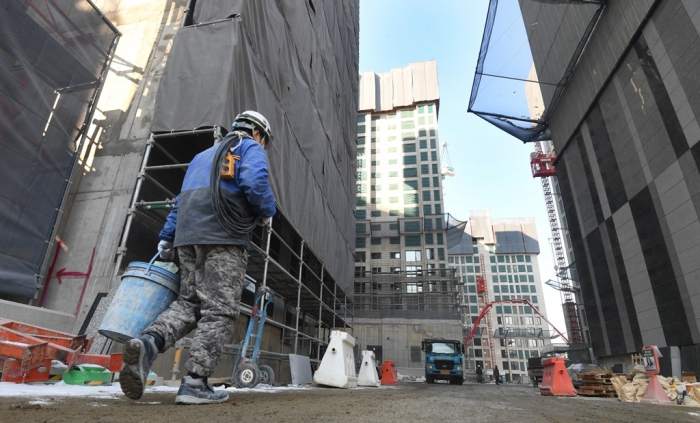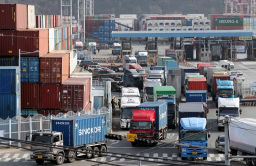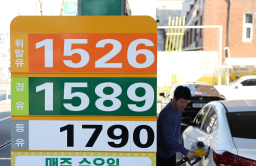-
KOSPI 2577.27 -2.21 -0.09%
-
KOSDAQ 722.52 -7.07 -0.97%
-
KOSPI200 341.49 +0.02 +0.01%
-
USD/KRW 1396 -2.00 0.14%
KDI cuts Korea growth forecasts, ups inflation predictions
Economy
KDI cuts Korea growth forecasts, ups inflation predictions
The South Korean think tank expects the semiconductor sector to improve further; outlook for construction, consumption bearish
By
Nov 09, 2023 (Gmt+09:00)
2
Min read
News+

A South Korean government think tank has cut its growth forecast in Asia’s fourth-largest economy for this year and next but raised inflation predictions, suggesting the central bank needs to maintain its tightening bias for the time being.
The Korea Development Institute (KDI) on Thursday said it revised down its economic growth forecast for 2024 to 2.2% by 0.1 percentage point. It also lowered its prediction for growth in 2023 to 1.4% from the prior 1.5% released in August as the economy was likely to expand by 1.8% in the second half, slower than its previous growth forecast of 2.1%.
The KDI ramped up its consumer inflation forecasts for this year and next to 3.6% and 2.6%, respectively, by 0.1 percentage point each from its previous prediction of firm oil prices.
“Inflation has been slowing due to higher interest rates but it is still significantly above the central bank’s target,” KDI said in a statement, referring to the Bank of Korea’s long-term goal of 2%. “It is necessary to keep the monetary policy tight for the time being.”
BOK Governor Rhee Chang-yong last month said inflationary pressure may ease more slowly than earlier expectations, leaving the door open for an additional policy interest rate hike after keeping the rate at 3.50% in a unanimous decision for a sixth straight meeting.
SHINY SEMICONDUCTORS; CLOUDY CONSTRUCTION, CONSUMPTION
Interest rates are likely to stay high next year, keeping downside pressure on the economy, said Jung Kyu-Chul, a senior fellow at the KDI’s macroeconomic analysis and forecasting office.
“The construction sector among domestic industries is expected to significantly contract,” Jung said.
The construction investment is predicted to shrink by 1% next year, far wider than a previous prediction of a 0.2% fall, the KDI said. The state-run institute slashed its 2024 forecast for private consumption growth to 1.8% from the prior 2.4%.
The export outlook improved thanks to growing demand for semiconductors, the country’s top item for overseas sales. Goods exports are expected to grow 3.5% in volume next year after increasing 2.4% in 2023, according to the KDI.
“The semiconductor industry, which accounts highly for exports, is predicted to grow, helping the economy gradually recover,” Jung said.
South Korean exports rose in October for the first time in 13 months as semiconductors are on course to regain momentum. The electronics components made up 18.9% of the country’s exports in 2022, according to the government data.
The nation is home to the world’s two largest memory chipmakers – Samsung Electronics Co. and SK Hynix Inc.
Write to Se-Min Huh at semin@hankyung.com
Jongwoo Cheon edited this article.
More To Read
-
Nov 01, 2023 (Gmt+09:00)
-
Oct 26, 2023 (Gmt+09:00)
-
Oct 19, 2023 (Gmt+09:00)
-
Aug 10, 2023 (Gmt+09:00)






